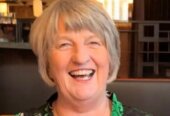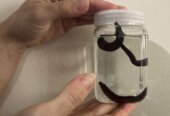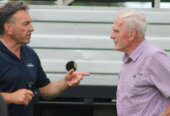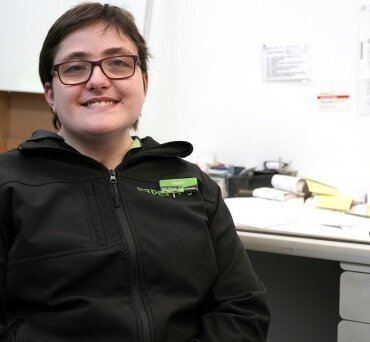

Tegan Crotty in at work in Paper Plus, Te Awamutu. Photo: Benjamin Wilson.
When Tegan Crotty’s friends told her she should try out swimming, she was initially reluctant.
But the minute she got in the water “it was just like that,” the 27-year-old Te Awamutu retail assistant and Special Olympics global messenger recalls.

Shelley Blair
Swimming coach Shelley Blair did some early training sessions because Tegan, who had not swum for years, was a little uneasy.
Then one day in 2014, when Shelley was busy with somebody else, Tegan swam the length of the pool much to everyone’s surprise, including her own.
Before she sustained a serious right foot injury three years ago, Tegan was swimming up to four times a week and competed at her first Special Olympics nationals in 2017.
“Swimming is a great equaliser. In the pool, I’m like everyone else, my disability is nothing,” she says.
“When I got into the pool again, it became second nature.”
Going to the nationals in Wellington was also the first time the former Te Awamutu College and Korakonui School student had been in a plane on her own.

Roz and Tim Crotty with daughter Tegan at Parliament after her appointment as a global messenger. Photo supplied.
So confident had she become at Special Olympics, the challenges in Wellington – mostly involving her wheelchair – were soon overcome.
“We were told the bus was wheelchair friendly and it wasn’t, the whole time we were there, that’s what we had. So that was a minor challenge, but it was nothing we couldn’t deal with.”
What Tegan realised though was she was not special despite her spina bifida and hydrocephalus (build up of fluid on the brain).
“At my school, I was the only one in a wheelchair but coming into Special Olympics, I was around similar people. There were lots of other people in chairs with all sorts of disabilities.
“For me, my disability is a part of who I am, not the entire picture. That came about because of Special Olympics.”

Athlete leaders in Parliament 2019 – l-r Tegan Crotty, Ben Oaten, Sarah Dalton, Sean Tremlett. Photo: Supplied
Three years ago, Tegan was appointed one of New Zealand’s global messengers in the Special Olympics’ Asia Pacific region.
Tegan is trained to be a spokesperson and an ambassador. That has seen her play a leadership role during Covid when those with disabilities experienced significant inequalities.
“I’m able to be that person between athletes and the Special Olympics.”
Becoming a global messenger was not easy. Athletes must go through athlete leadership training.
Every four years, 10 athletes from around the world are selected to train and serve as international global messengers, now called athlete leaders.
The training has helped develop her confidence, speech writing and presenting.
“We all come together and try and make Special Olympics more inclusive for everyone.
“Special Olympics is inclusiveness, being part of a team, not only doing what you love but also doing it with people around you.
“Our disability is not the main focus, it’s just something you are,” said Tegan.
From competing at her first Special Olympics to today, Tegan is in no doubt what she has achieved.
“It has helped me become a stronger person, more resilient.”

Special Olympics chief executive Caroline Young and Special Olympics founder Grant Quinn with Tegan Crotty. Photo supplied.
When Tegan left Te Awamutu College, she did a business administration and computing course at Te Wānanga o Aotearoa in Te Awamutu and finished level three at Wintec in Hamilton.
She has worked at Paper Plus for six years doing three mornings a week “and I love it.”
For 10 years she has volunteered at the Red Cross charity shop.
She can drive herself around thanks to her Mazda car which was originally foot controlled but was adapted at Matangi Motors for her wheelchair use.
It means she can take out friends who are unable to drive because of their disability.
“For me being as independent as possible is the key.”
The biggest setback has been the injury she sustained when she clipped her right foot on the side of the pool. Because she has no feeling in her body below the knees, she was unaware she had done any damage until she got home and saw the blood blister on her foot.
The blister broke and it resulted in a bone infection. Tegan’s body fought the infection, but she did not register she had a problem until she realised the wound was not healing.
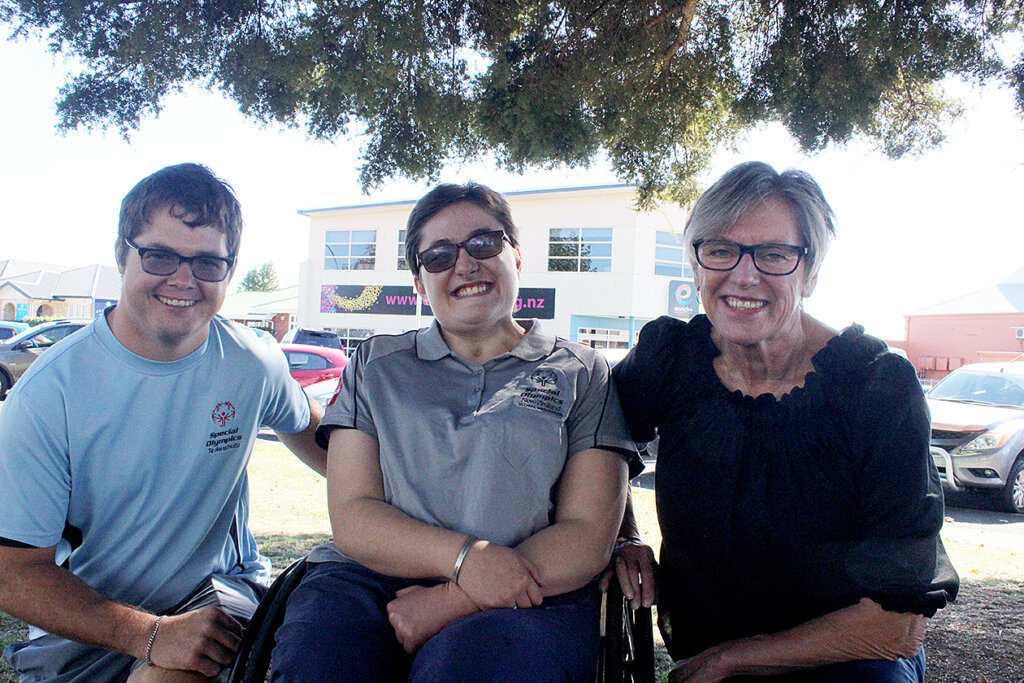 Dressing the foot and wrapping it in bubble wrap so she could swim was no good.
Dressing the foot and wrapping it in bubble wrap so she could swim was no good.
“I had to resign myself to the fact it wasn’t the right time (to go back swimming).”
Hospitals and operations have been regulars in her life. Among several challenges, she had scoliosis “an exact S with my spine.”
“I’ve had 30 plus operations in my 27 years of life. For me, it’s just something that is my life. It’s part of my journey, like my foot injury.”
Tegan pines for the day she can be back in the pool and be able to say “yes coach” to Shelley.
“When you’re swimming, you get in that zone. It’s not about winning. For me it was always ‘yes I did it.’ I achieved it, I got to the end.”
- Special Olympics welcomes all people with intellectual disabilities and allows them to compete within their own ability levels. It was founded by Eunice Kennedy Shriver, sister of President John F. Kennedy, and is a global movement that today serves more than six million people with intellectual disabilities in 200 countries. The nationals will be held in Hamilton from December 8-12 and many Waipā athletes are expected to join 1500 athletes and coach and 600 volunteers in 10 sports.




